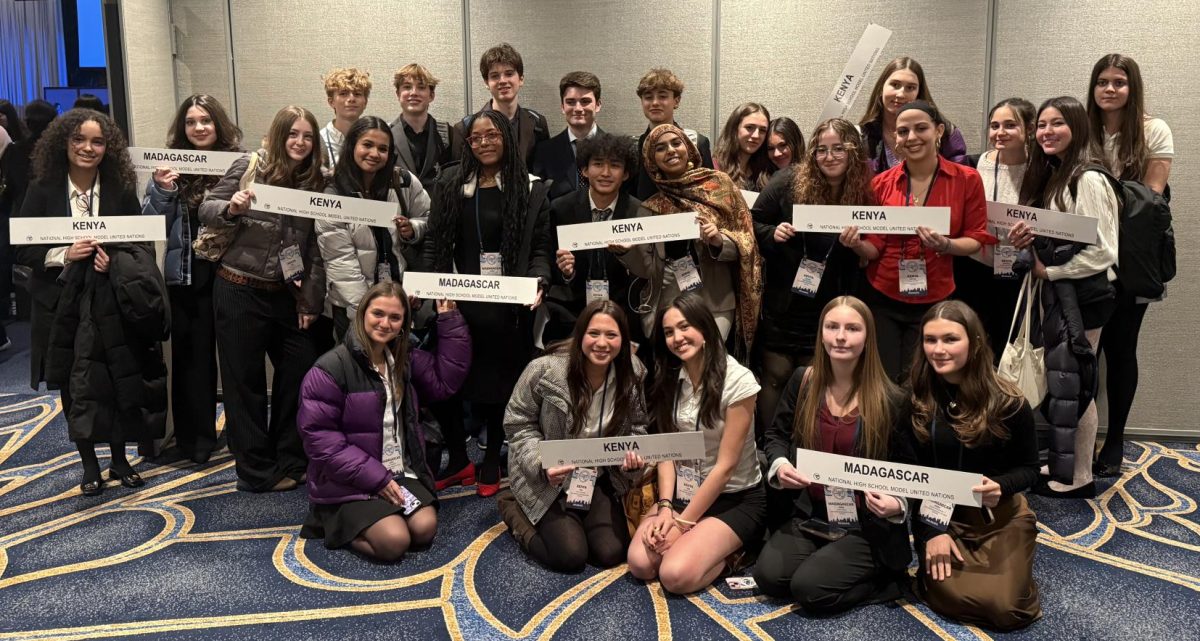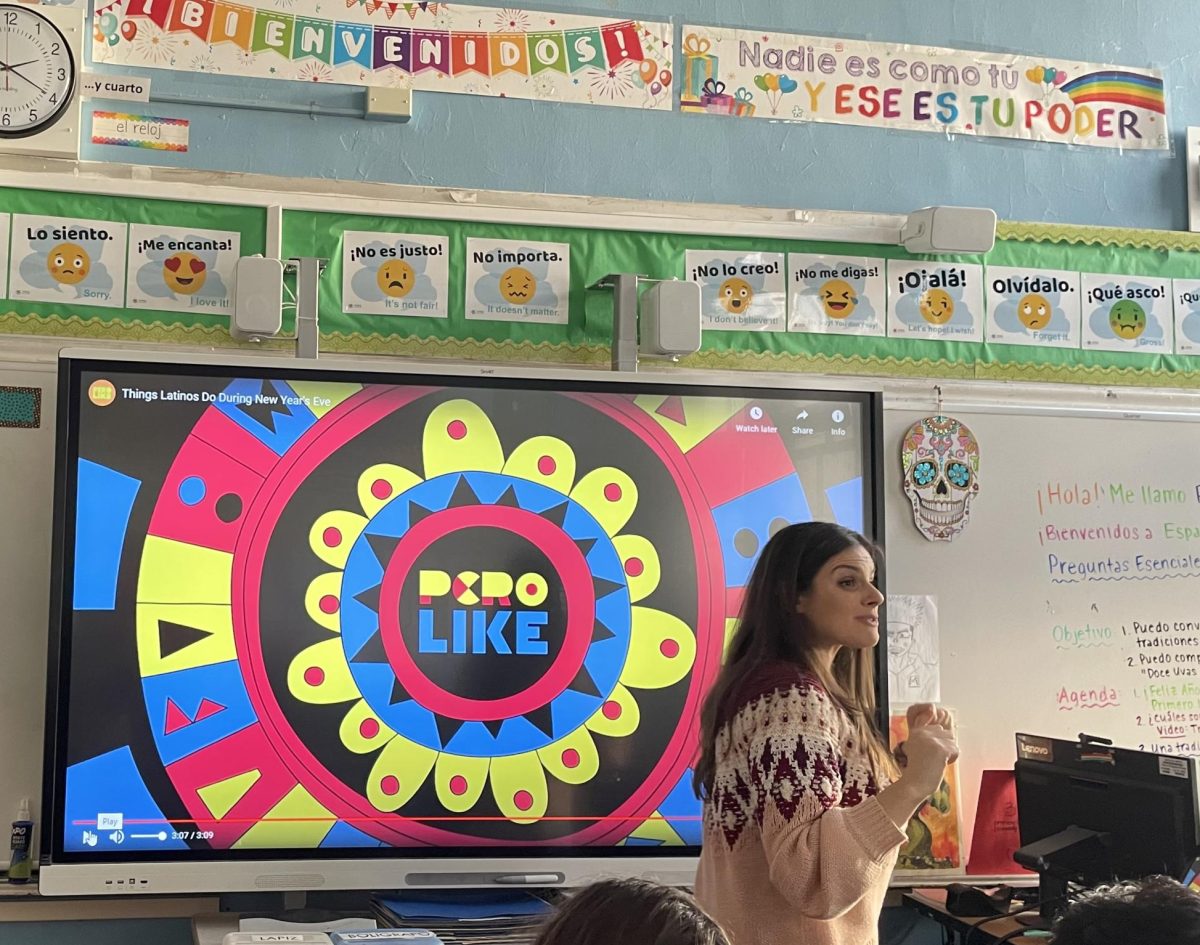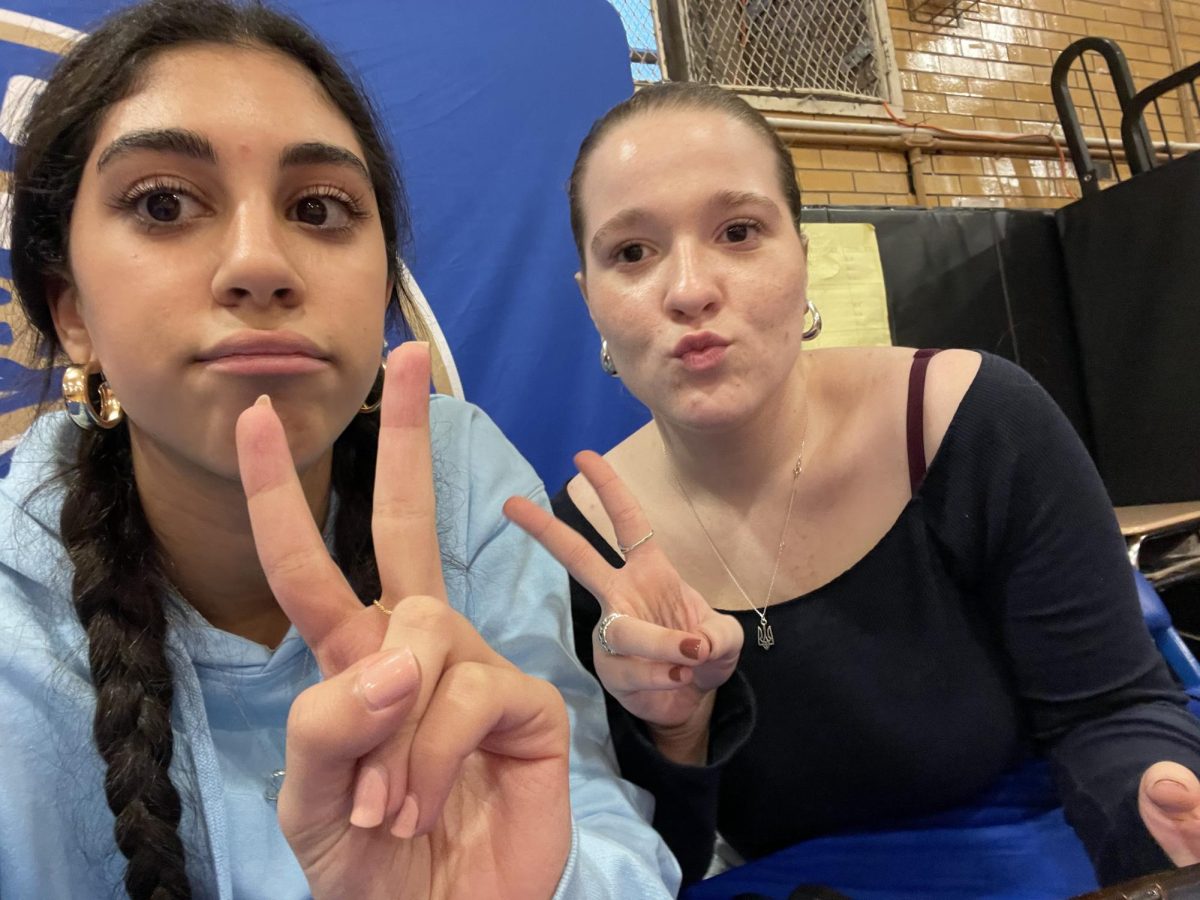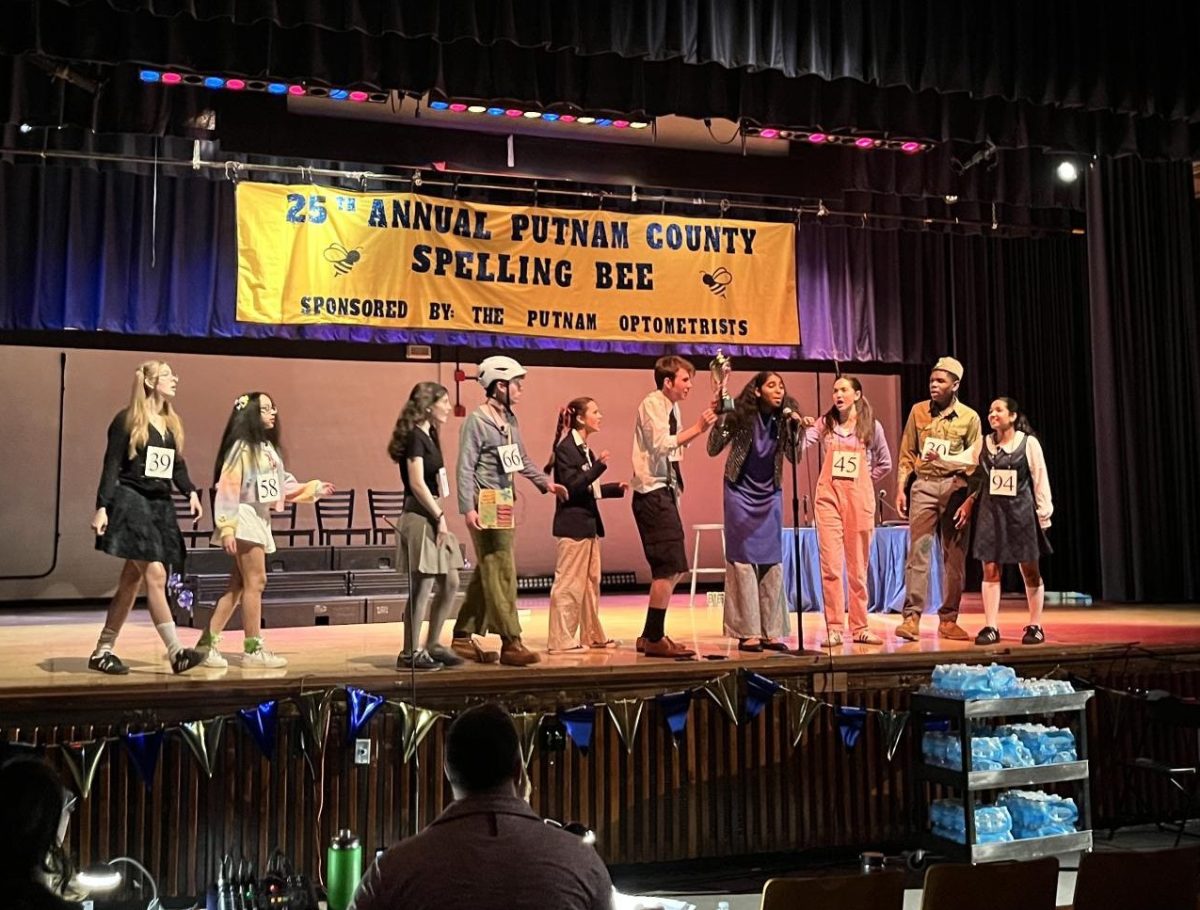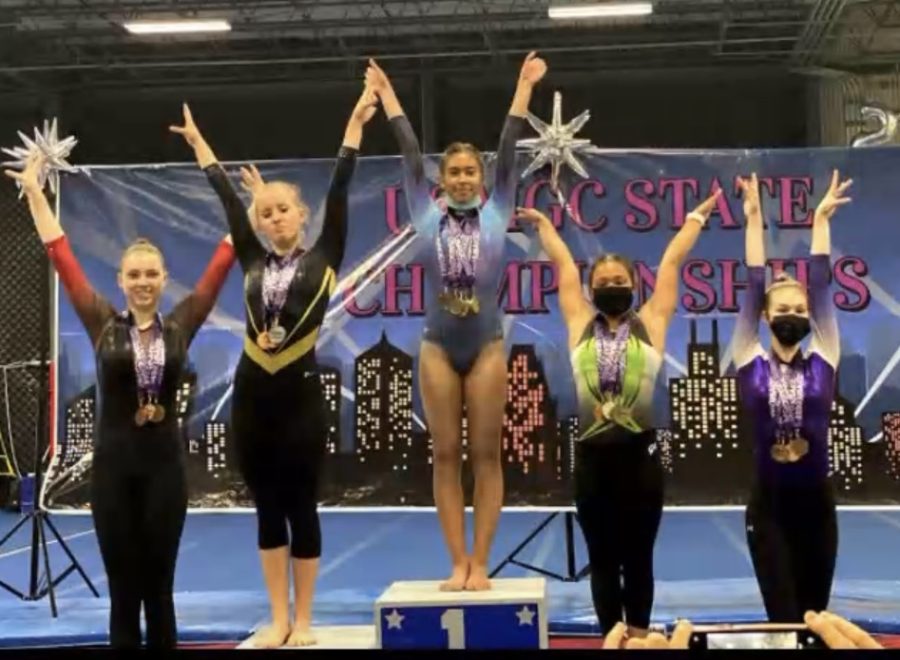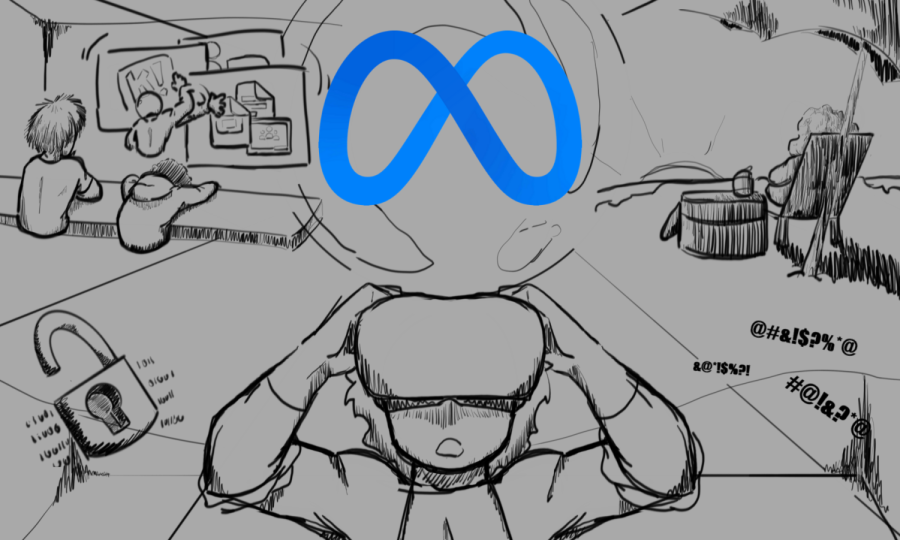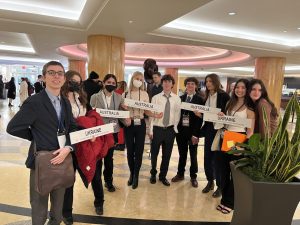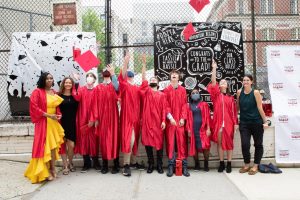The Student Equity Club Grapples with A Year of Tumult
June 28, 2022
Immediately upon entering room 301 for a Student Equity Club meeting, one notices the warmth displayed by the gathered students, who welcome each other in a collaborative spirit. “We want to make sure everyone’s voices are heard,” says Olive Ephross, a sophomore who joined SEC this year. “[O]ne of the main things we try to achieve in the club is that every student in the school feels safe and has all of the resources they need.” The SEC, a student group, aims to advise Millennium faculty and administration on how to better incorporate issues related to equity into instruction and campus policies. They also play a role educating the campus community about sensitive issues related to identity and race.
In the meeting I attended, the SEC members’ concern for the equity and emotional well-being of their classmates was on full display. Set up in a sharing circle, students brainstormed ideas to determine which topics they should discuss that week. Throughout the meeting, members shared ideas for lessons they could craft for advisory teach-ins on Black History Month or Women’s History Month, offered their opinions about current events and proposed solutions to problems within the school. “Most of what we talk about is within the school community. Usually what happens is people bring up problems or situations that they’ve heard about recently in the school, and we try to figure out what we want our response to be,” Ephross continues. “I think a lot of what we deal with is within MBHS but we also try to respond to issues that are more global because they do affect our schools’ population.”
A few years ago, the faculty and administration at MBHS felt that there was a disconnect between the student body’s reaction to sensitive topics involving identity and the administrative or faculty responses to related conflicts, whether the issues were global or campus specific. When conflicts arose between students in the school, teachers wished students had more of a voice in the school-based response or resolution process.
Seeking Educational Equity & Diversity (SEED), a teacher-driven organization, was established in 2017 with founding members Mr. McDonough, Mr. Hamilton, Ms. Beato, Ms. Ciocca, and Ms. Middleton. SEED gives workshops and provides professional advice to MBHS teachers on how to incorporate aspects of equity and identity into their classrooms. Feeling the need to incorporate student voices into their planning, these same teachers began to look upon the student body to form a similar coalition of their own. Ms. Beato describes the motive behind founding the group, now known as the Student Equity Council (SEC): “Two years ago…we didn’t really have what we felt was like a finger on the pulse of what was happening in terms of student life…Say something happens in advisory, for example, maybe a student says something sort of contentious or tense, then we might help the teacher navigate that conversation… but we found that sometimes students would talk about [these issues] among themselves.” Beato and her colleagues thought it was important to establish a group of students that were willing to take on leadership roles to bridge dialogue on how to navigate these important social issues and address how controversial events inside and outside of school which might inflict trauma on certain members of the student body. By serving roles on the SEC, students would have power and accountability in addressing such matters as they arose at MBHS.
And so, the founders of SEED recruited a coalition of students, specifically those who were dedicated to improving the school community. They identified candidates who had a passion for equity. Students applied and were selected for the Student Equity Council based on their potential for leadership and their commitment to creating an equitable school culture.
During the switch to remote learning amid the pandemic–especially after the murder of George Floyd–the SEC took on the task of providing spaces for students to convene and unpack the horrific accounts of police brutality splashing across the news, as well as the related political responses, from mass protests to Donald Trump’s loaded rhetoric. SEC members facilitated forums over Zoom for students from all grades and specifically for affinity groups grappling with the psychological toll of such events. At the time, the club formed a strong sense of communication and collaboration with the schools’ administration, where members met privately with administrators to talk about how to address issues in the school community.
Over the past couple of years, the SEC has grown from its original core of a few students. Sophomore Mariana Maloney says that she’s “heard much more about Student Equity Club this year than last through things like surveys, emails, and posters. It’s good that it’s getting more publicity.”
A tricky yet crucial aspect at the core of the SEC is that many topics brought up in the club are sometimes difficult to discuss by their very nature. The group’s mission is to address conflicts that might arise related to students’ identities, and thus race, religious affiliation and gender, inherently sensitive topics. When asked about disagreements that unavoidably arise during some meetings, Ephross says: “We always try to proceed with caution and apologize whenever we think that we made a mistake or we may have offended someone… [D]isagreements will come up every once in a while, but we just try to plan ahead for how to deal with those and try to make sure we fix every problem as it comes up.” Despite the discomfort, members of SEC feel it’s important to practice dealing with confict in situations on this smaller and less-consequential scale so that entering the real world, the students of Millennium are prepared to deal with similar conflicts.
Another goal of the club is to spread awareness and information about different interest groups–often through presentations or advisory lessons. The student body experienced such lessons via Zoom advisory during the 2020-21 school year. These talks, organized by SEC members, strive to inform the student population about other cultures or aim to unpack issues affecting underrepresented groups, while also celebrating diversity and inclusion. “If you put other identities on the map and also exalt them in a positive way, that’s what we mean by celebration. Attaching npositive [associations] to other forms of identity, that really goes a long way, I think, into sort of nipping people’s biases in the bud, and cutting through that shortcut negative thing that we tend to do as humans,” says Beato. This year the group continued the practice by developing lessons honoring the Muslim experience and the AAPI community. “With every month [having a specialized focus], you really have some time to zero in or give those different groups the service and the attention that they need.”
Recently, the SEC has been focused on tensions related to the Israel-Palestine crisis that have emerged on campus. The BIPOC Anti-Racist Coalition organized a processing session and space for students to share their reactions and feelings in the wake of one particularly alarming event where a component of the Solidarity Wall was vandalized. In solidarity, many members of the Coalition gathered to air their concerns about effects on the members of the Millennium community.
In their own response, the SEC held a student forum with guest speakers Suma Qawasmi (a Palestinean) and Ittay Flescher (an Israeli). The pair work together in running Kids for Peace, a Jerusalem-based organization focused on resolving conflict and finding ways “to create more just and inclusive societies.” They spoke about methods of resolving and accepting disagreements in a productive way. During the meeting, the pair conducted a conflict resolution active-participant workshop which offered guidance on how to live with the differing opinions of the people around you. Volunteers were assigned a light topic and a side to argue for a set time period, with the aim of engaging with “opponents’” who had a different take on the theme. Many found the activity insightful, though some students present at the meeting were left dissatisfied. One who attended noted that there “was an obvious tension between the two speakers. How are we supposed to learn about peace between two nations if our two representatives aren’t peaceful with each other?” The student observer elaborated that, “The Palestinean woman was talking about the anger she held for the Israeli people, but the Israeli man was talking about his hopes for peace. It was hard to see [from their example] how to resolve issues and be peaceful with each other.” The student left the meeting feeling they still did not have resolution on how to “deal with people in the school community [who] have fundamentally different opinions.”
Some members of Student Equity Club took leave of the club after the Solidarity Wall incident. Some left for personal reasons, while others felt that the club and the school were not responding to the event adequately and that the administration did not make a sufficient effort to address the concerns of students who were hurt by the act. One student who did consider leaving the club but ultimately remained and wishes to remain anonymous, expressed their desire for MBHS to pursue more integration and sharing of resources across the John Jay campus. This SEC member repeatedly advocated for change in club meetings, but felt the group had made no progress in that regard. “[The SEC has been] really focused on doing stuff just within our school which is really helpful… I just wish, as a member, that we would make more of an effort to reach out to the other schools and share our resources.” The student also mentions that, within the club, there is a fear of stepping on the toes of the other school solidarity groups like Black Student Union. This member feels that “we should work more with them rather than being scared of overlapping with them.”
In spite of these challenges, however, the SEC member notes that, “Everyone in the group seems really committed to doing something [positive] for the school… Since [the club is] really small it feels like it’s less just talking and instead we’re always making a plan to do something… [We are] reaching out to people and setting up forums, which take a lot of planning, so I really appreciate how much effort everyone puts in and how much everyone seems to care. I just wish…that we would try to include the other schools more often.”
Overall, the SEC holds great potential to change the school environment in a positive and informative way. Beato reflects that the club offers “a very special opportunity for students to talk directly to people that hold power, where I think often that connection isn’t there.” The SEC has the power to serve as a conduit for students to access those in a position of influence, and begin to have a larger say in their school culture.
